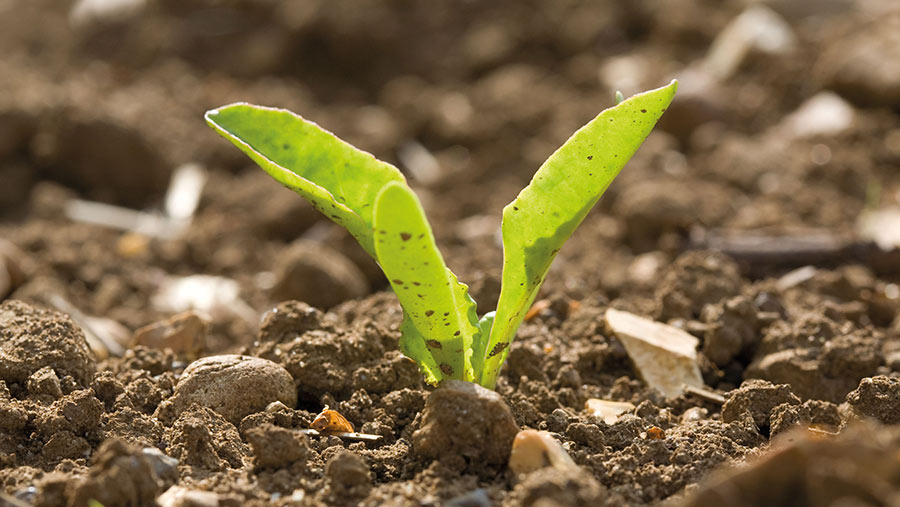Defra approves neonics seed treatment for sugar beet crops
 © Tim Scrivener
© Tim Scrivener Defra has granted sugar beet growers in England emergency use of neonicotinoid seed dressings for 2023 plantings to protect crops from virus yellows, transmitted by aphids.
For the third year in a row, beet growers will have access to Syngenta’s Cruiser SB (thiamethoxam), but only if independent modelling predicts a virus incidence of 63% or above, which looks unlikely given the recent cold spell.
This product can only be used if this strict threshold is met and on a single non-flowering crop (sugar beet).
See also: Frost insurance scheme triggered for sugar beet growers
The decision comes just days after the Court of Justice of the European Union blocked France’s government from allowing sugar beet growers to use neonicotinoid-treated seeds, which scientific studies have linked to harming bee health.
More than 50% of UK sugar comes from domestic beet production.
But Defra said the national sugar beet crop could face serious losses due to the risk from aphids, which transmit virus yellows that can wipe out about 50% of a crop.
Potential threat to UK sugar production
Defra farming minister Mark Spencer said the decision to approve neonic-treated beet seed had “not been taken lightly” and was “based on extensive and rigorous scientific assessment”.
“We recognise the potential danger of an outbreak of the beet yellows virus on the nation’s sugar beet crop and the effect it could have on the production of UK sugar,” he added.
“Therefore, after careful consideration, we regard issuing an emergency authorisation a necessary measure to protect the industry.”
Mr Spencer considered advice on this application from the Health and Safety Executive, the independent UK Expert Committee on Pesticides and Defra’s chief scientific adviser.
In 2020, 25% of the national sugar beet crop was lost, costing £67m across an industry that creates nearly 10,000 jobs.
Mixed reaction
The Pesticide Collaboration, a coalition of health, environmental, farming and consumer groups, academics and trade unions, including Friends of the Earth and The Wildlife Trusts branded the government’s decision to again approve neonics use in beet as “a total failure of responsibility to protect vital species”.
But beet growers welcomed the decision, saying no alternatives are available at present.
Robert Law, a mixed farmer who grows sugar beet at Chrishall Grange Farm, in Royston, Cambridgeshire, said: “If the [neonics] derogation is granted and all the models say we need it, I think we will use it.
“We have had Brexit, we can do what we want. This should be one of the benefits of being outside the EU.”
A spokesman for British Sugar said: “We welcome Defra’s decision to approve our joint application for the emergency use of a neonicotinoid seed treatment in 2023, should it be required, subject to the outcome of the Rothamsted virus yellows model, which will be known on 1 March 2023.
“We are currently reviewing all associated documentation, and waiting for the stewardship conditions associated with this authorisation. Once digested, we will comment further in the coming days.”

